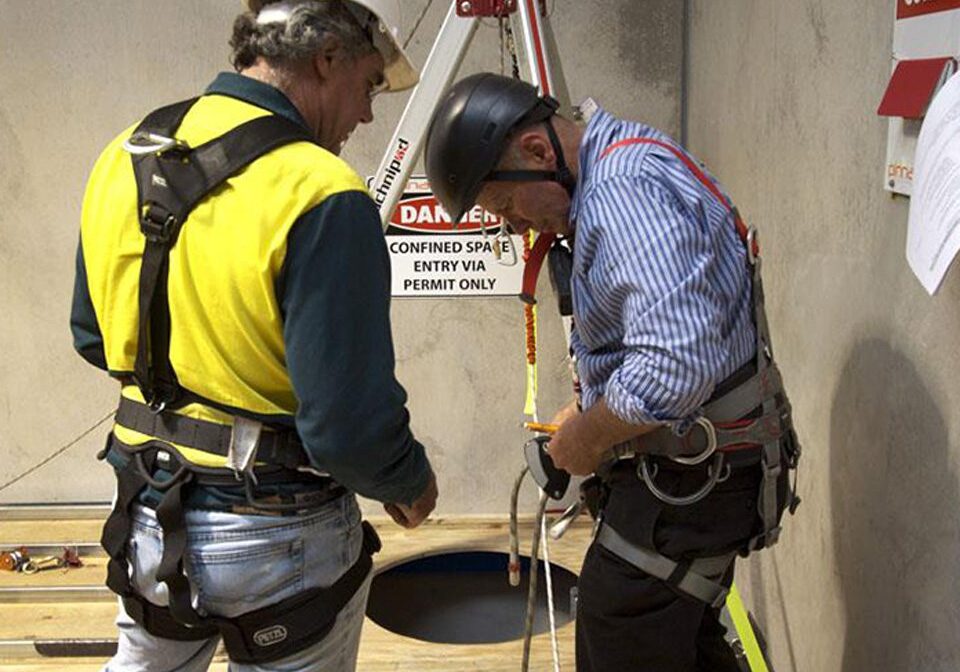Enhancing Pipeline Safety with Employee Training
Pipeline construction is a high-risk industry where safety is paramount. Whether constructing new pipelines or maintaining existing ones, it’s essential that workers understand the potential hazards and how to mitigate them. One of the most effective ways to ensure safety on the job is through safety employee training. By focusing on comprehensive education and safety measures, workers can be better equipped to handle the challenges of pipeline construction. In this article, we’ll explore the importance of safety training in pipeline construction and how pipeline construction safety training online can be a game-changer for employees and employers alike.

Importance of Safety Employee Training
Safety employee training is critical for any construction job, but it becomes even more crucial in pipeline construction. This field presents unique dangers, such as exposure to hazardous materials, working in confined spaces, and the risk of heavy machinery accidents. Without the proper safety knowledge, employees are more vulnerable to accidents, which can result in injury or even death.
By investing in safety employee training, employers create a culture of safety that helps reduce workplace accidents. Employees who are trained in safety protocols understand how to identify potential hazards, use safety equipment correctly, and follow safety procedures. Additionally, they become more confident in their ability to handle emergencies, which further contributes to a safer work environment.
Key Areas of Pipeline Construction Safety Training
Pipeline construction safety training should cover a wide range of topics to ensure that workers are well-prepared for the various risks they might face. Key areas to focus on include:
-
Hazardous Material Handling: Workers should be trained in handling hazardous materials that might be present on the site, such as chemicals, gases, and fuels. This training includes understanding labeling systems, proper storage, and emergency response.
-
Confined Space Safety: Many pipeline construction tasks are performed in confined spaces, such as trenches and tanks. Proper training on working in these areas is necessary to avoid accidents related to limited oxygen, toxic gases, and potential collapses.
-
Personal Protective Equipment (PPE): Employees should know how to properly use and maintain their PPE, such as hard hats, gloves, boots, and respiratory protection. Proper PPE usage helps to prevent injuries and illnesses caused by exposure to hazardous conditions.
-
Machinery Operation and Maintenance: Operating heavy machinery such as cranes and excavators is a fundamental part of pipeline construction. Training in machinery operation and maintenance ensures workers can operate equipment safely and troubleshoot problems efficiently.
The Advantages of Pipeline Construction Safety Training Online
Traditionally, safety employee training was conducted in-person, which required employees to travel to training centers and take time off from work. However, the advent of pipeline construction safety training online has made safety training more accessible and flexible for workers. There are several advantages to taking pipeline safety courses online:
-
Flexibility: Online training allows employees to complete courses at their own pace and on their own schedule. This is especially beneficial for companies with multiple job sites or workers who are spread across different locations.
-
Cost-Effectiveness: Online safety training can be more affordable than traditional in-person classes. It eliminates the need for travel expenses and reduces the time spent away from work, allowing for better productivity.
-
Comprehensive Learning: Online courses can provide a wide range of resources, such as videos, quizzes, and interactive modules, to help reinforce learning. This enables employees to understand complex concepts and safety protocols more effectively.
-
Easy Updates: Safety regulations and guidelines may change over time. Online training platforms make it easier for companies to update courses and ensure that employees stay up-to-date with the latest safety procedures and regulations.
How Online Safety Training Benefits Employers
For employers, pipeline construction safety training online offers several benefits. By providing accessible and effective training, employers can reduce the risk of accidents and injuries on the job. Moreover, online training platforms often include tracking features that allow employers to monitor employees’ progress and ensure compliance with safety standards. This can be particularly useful in industries where safety certifications and documentation are required.
Ensuring that employees receive the proper safety training is essential for the success and safety of pipeline construction projects. By investing in safety employee training and utilizing pipeline construction safety training online, employers can create a safer work environment for their workers and protect their company from costly accidents and liabilities.
For more information on this topic, see our website.
ATV driver training course online
safety training online courses
Comments
Post a Comment